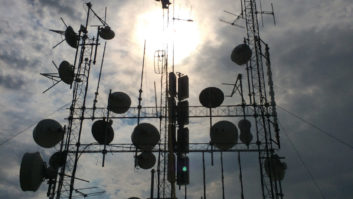An FM translator received a letter no radio operator wants to get: an order to shut down.
After nearly a year of debate between the translator’s owner and a nearby full-power station, the Federal Communications Commission sent a letter requiring that Arohi Media, licensee of FM translator W252DK in Raleigh-Durham, N.C., cease operation immediately.
In August 2016, Lakes Media sent an informal objection to the FCC alleging that the translator was interfering with reception of WLUS(FM) in Clarksville, Va. Lakes submitted comments from listeners who complained of difficulties receiving WLUS in their homes and while driving.
Back and forth comments ensued, with ongoing disagreement about whether all of the listener complaints are indeed valid; Arohi alleged that some not actually bona fide listeners and that other complaints were downright fraudulent. Lakes disputed the claims.
The commission noted that Arohi did attempt to address some of the listener complaints but said at least three of them have not yet been resolved. That prompted the commission to press Arohi to either resolve all complaints of interference within a month’s time frame or to suspend W252DK operations.
“Failure to correct all complaints … may require W252DK to suspend operation,” the FCC wrote in a letter to the owner.
There has also been much discussion about whether W252DK is actually causing interference at all. Lakes Media offered multiple examples of interference; Arohi brought forth an engineering study that said it would not even possible for W252DK to be causing objectionable interference to WLUS.
Turning to guidance from its own rulebook, the commission cited FCC rules that say an FM translator station cannot continue to operate if it interferes with listeners’ ability to receive an authorized broadcast station’s off-the-air signals.
Of key issue, though: whether W252DK eliminated actual interference to the co-channel station. The commission found it had not. In particular, Arohi failed to show evidence that it tried to resolve those last three complaints from listeners within the 30-day timeframe. As a result, the commission ordered the translator to suspend operations.












